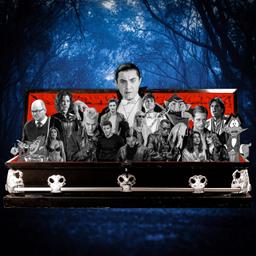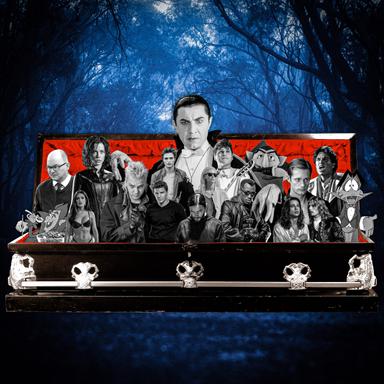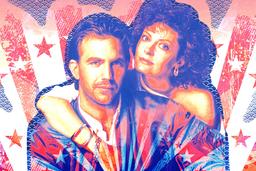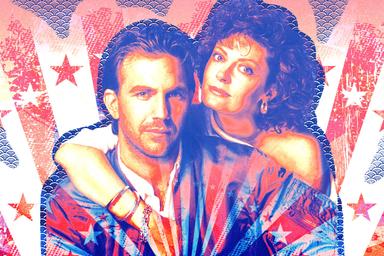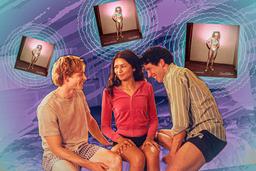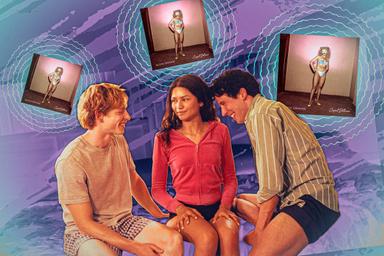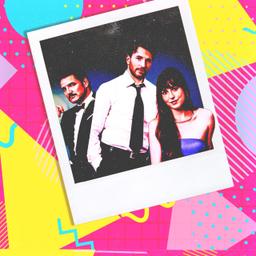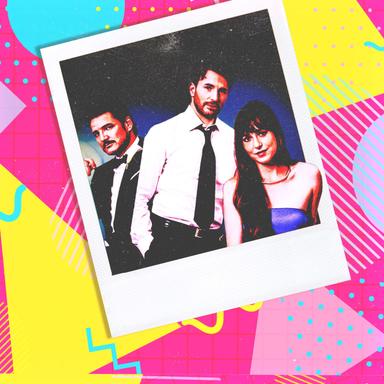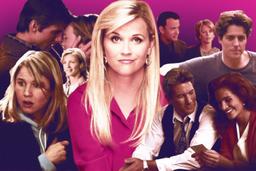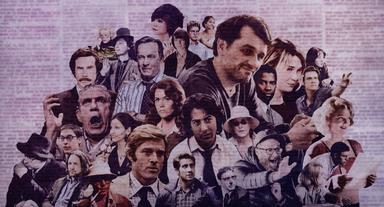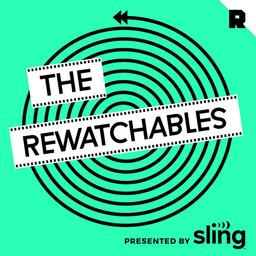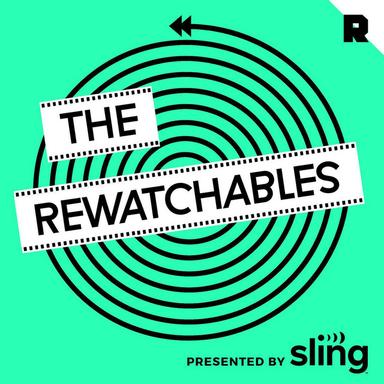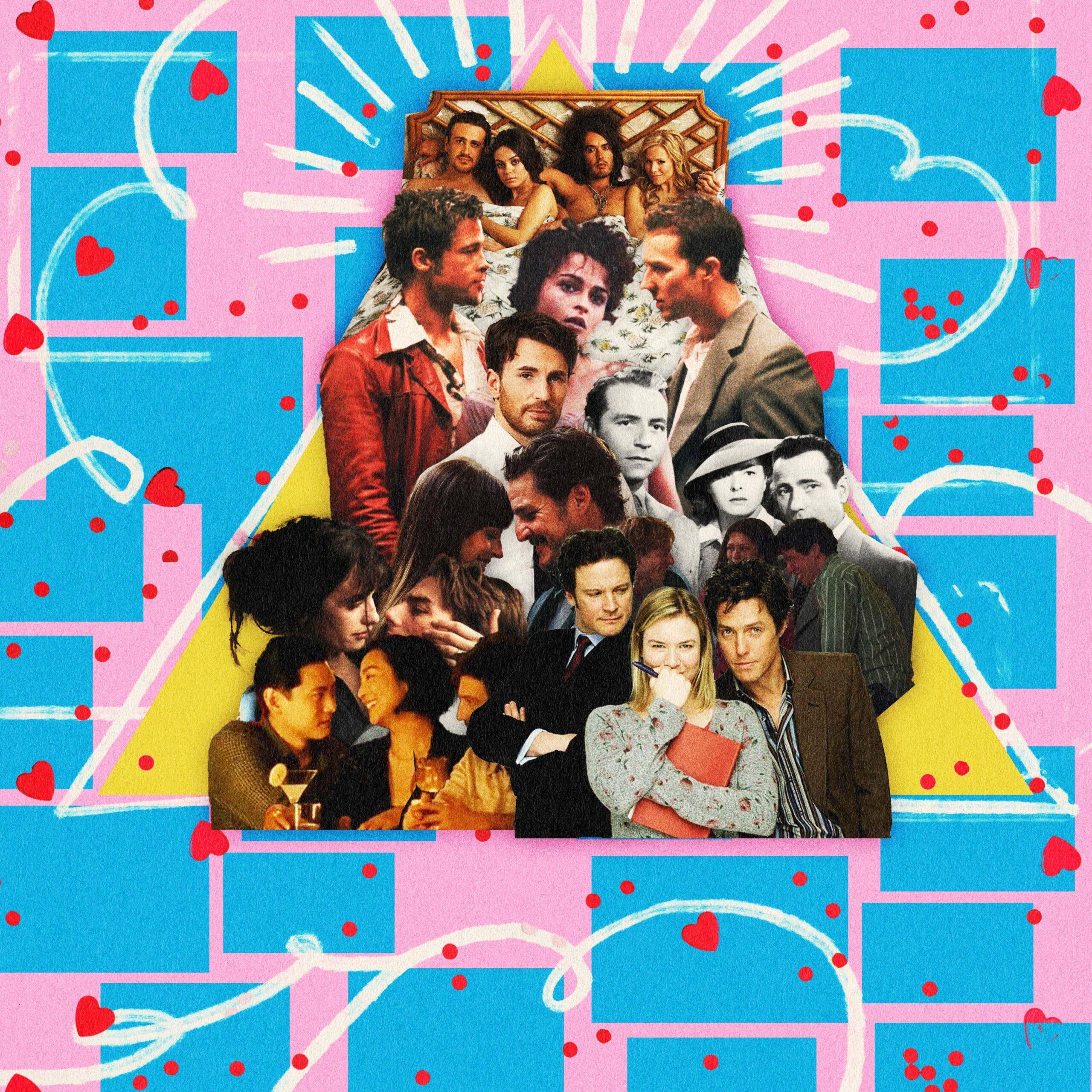
Celine Song’s Materialists, released last week, puts Dakota Johnson, Pedro Pascal, and Chris Evans (three of the last movie stars, an endangered species) in a love triangle. The film, which has spurred much debate online, is already a worthy candidate in the love triangle canon, a rich text started by the Greeks, perfected by Shakespeare in A Midsummer’s Night Dream and Twelfth Night, and often leaned on in modern cinema, from Casablanca to The Apartment to, yes, Center Stage.
Nothing exposes human vulnerability quite like wanting (or being wanted by) two people at once. Whether they’re romantic, toxic, tragic, or just deeply chaotic, the best love triangles reveal something deeper about identity, desire, and the choices we’re too scared to make. And at their worst, love triangles simply provide a couple of hours of watching hot people say lines from a bad script (complimentary). Love triangles have not gone, and will never go, out of style. While they rarely happen in real life (if it has happened to you, please let me know), the emotions that come with them are timeless, which is exactly why love triangles span centuries of storytelling and decades of cinema. The best love triangles don’t just ask who will they choose? Instead, they dig into why we want who we want, and what that says about us.
But what is the greatest love triangle in film history? To paraphrase Johnson’s character in Materialists, answering that question was a matter of math. Before diving into this incredibly definitive ranking, I had to break down the format with a rubric. The rubric includes five categories, which embody the essentials of every love triangle, both comedic and dramatic (or anything in between):
Tension: How well does the love triangle help build tension between the character(s)?
Suspense: How predictable is the love triangle?
Entertainment Value: How entertaining is the love triangle?
Chemistry: How well do the actors within the love triangle work together?
Subversion: How does the love triangle subvert expectations of a love triangle?
Because love triangles are so common, I also had to limit myself, because there is only so much time in the day (and in my life, and in my editor’s life). Therefore, this ranking is limited to films whose central plot is a love triangle. Movies like Wedding Crashers, The Notebook, or The Sound of Music did not qualify—these films feature love triangles but do not center the narrative on them. Any love triangles that involved minors were also left out, for reasons I should not have to explain. Honestly, that eliminated a surprising amount of movies (Rushmore, Almost Famous, Y Tu Mamá También). Every other eligible movie was graded on a scale of 1-5 in each category. The higher the score, the better the love triangle, although the ranking is arbitrary and based purely on my own opinions.
The ranking was not enough, however: love triangles come in many forms, and, therefore, I also wanted to hand out a few awards up top.
Could have been resolved by a threesome: This award, given to films with hot people who could have resolved their issues by simply simultaneously hooking up with each other, could also be seen as free advice. Awardees include Pearl Harbor, Center Stage, Indecent Proposal, Twilight, The Hunger Games, Broadcast News—it is time to stop myself before I list every movie in the ranking.
Empathy for the Other Guy (The Celine Song Award): This award goes to the films that make genuine effort to make the audience feel bad for the person who was kicked out of the love triangle. Most films go out of their way to villainize this person, but Materialists, Past Lives, Brooklyn, Casablanca, and Take This Waltz bravely do the opposite.
Resolved by Death: Kate Beckinsale’s decision in Pearl Harbor gets a whole lot easier when Josh Hartnett is killed in action. That’s certainly one way to end a love triangle.
Now, enough flirting. Here are the best love triangles in cinema, ranked ...
23. This Means War (2012)
Rubric score: 5. Tension (1), Suspense (1), Entertainment Value (1), Chemistry (1), Subversion (1)
This Means War never fully commits to the emotional stakes of its story, which follows two CIA operatives and besties who fall for the same woman. Instead of exploring real romantic tension or chemistry, it leans on cartoonish spy antics and a shallow rivalry between two men who are more invested in pranks than the woman. It’s empty, and no one seems like they actually care who ends up with whom, including the actors (Reese Witherspoon, Chris Pine, and Tom Hardy performed all of their scenes while asleep).
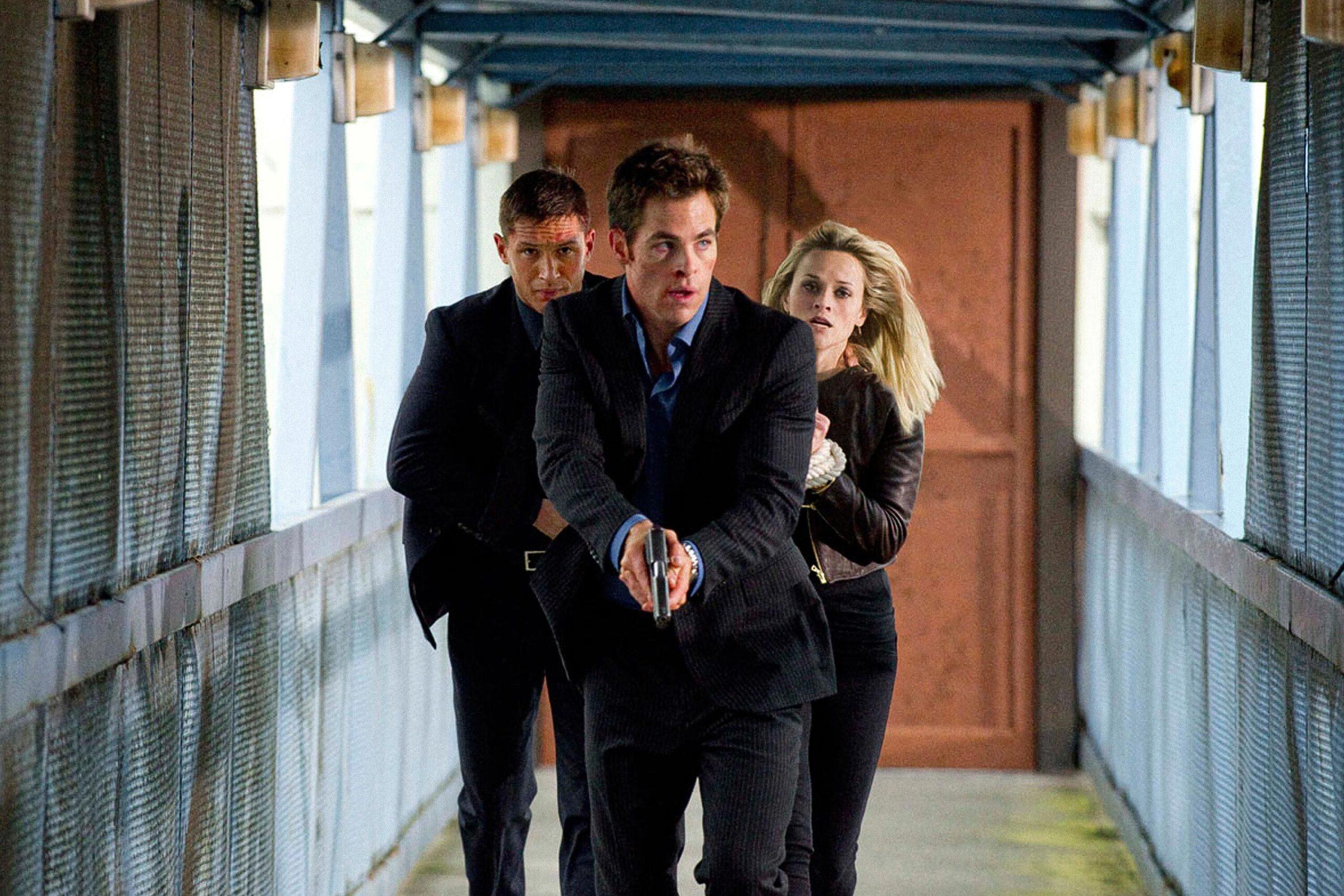
22. Sweet Home Alabama (2002)
Rubric score: 7. Tension (2), Suspense (1), Entertainment Value (1), Chemistry (2), Subversion (1)
Sweet Home Alabama teaches its audience the valuable lesson that the South = good and the city = bad. It is essentially a Hallmark movie featuring movie stars (Reese Witherspoon again, Patrick Dempsey, Josh Lucas), except it does not take place at Christmastime. Ultimately, it is a movie about legal documents. It also contains exactly one great performance, from none of the actors inside the love triangle. (Thank you for your service, Melanie Lynskey.)
21. Pearl Harbor (2001)
Rubric score: 8. Tension (1), Suspense (2), Entertainment Value (2), Chemistry (2), Subversion (1)
Michael Bay’s romantic World War II epic is nothing more than a desperate James Cameron cosplay. The only thing it has in common with Titanic, though, is that its VHS is split into two tapes and the original song slaps. Really, the only successful thing about Bay’s hamfisted, tired, and terribly predictable film—which follows two lifelong besties (Ben Affleck and Hartnett) torn apart not by war, but by a nurse played by Beckinsale—was the casting of Hartnett. That first VHS tape is moderately watchable because everyone is incredibly attractive.
20. The Twilight Saga (2008-2012)
Rubric score: 10. Tension (3), Suspense (1), Entertainment Value (3), Chemistry (2), Subversion (1)
The love triangle between Bella Swan, Edward Cullen, and Jacob is a conflict created for the sole purpose of making enough books to fill out a series. The only interesting thing about it is that—spoiler alert—Jacob eventually falls in love with Bella and Edward’s daughter Renesmee, who as a reminder, looks like this. Now that’s subversion.
19. Indecent Proposal (1993)
Rubric score: 14. Tension (2), Suspense (3), Entertainment Value (3), Chemistry (3), Subversion (3)
First, it must be put on record that the proposal in Indecent Proposal is, in fact, decent—although I am biased toward a lifelong crush on Robert Redford, who would very much not have to pay me to cheat on Woody Harrelson once. Indecent Proposal is a moral crisis triangle. It’s not about a woman caught between two men—it’s about a marriage tested by money, desire, and power. What happens when love is put on the auction block? Demi Moore, Redford, and Harrelson turn what could be trashy into something messy, emotional, and weirdly sincere. Actually, I take that back … it’s still pretty trashy.
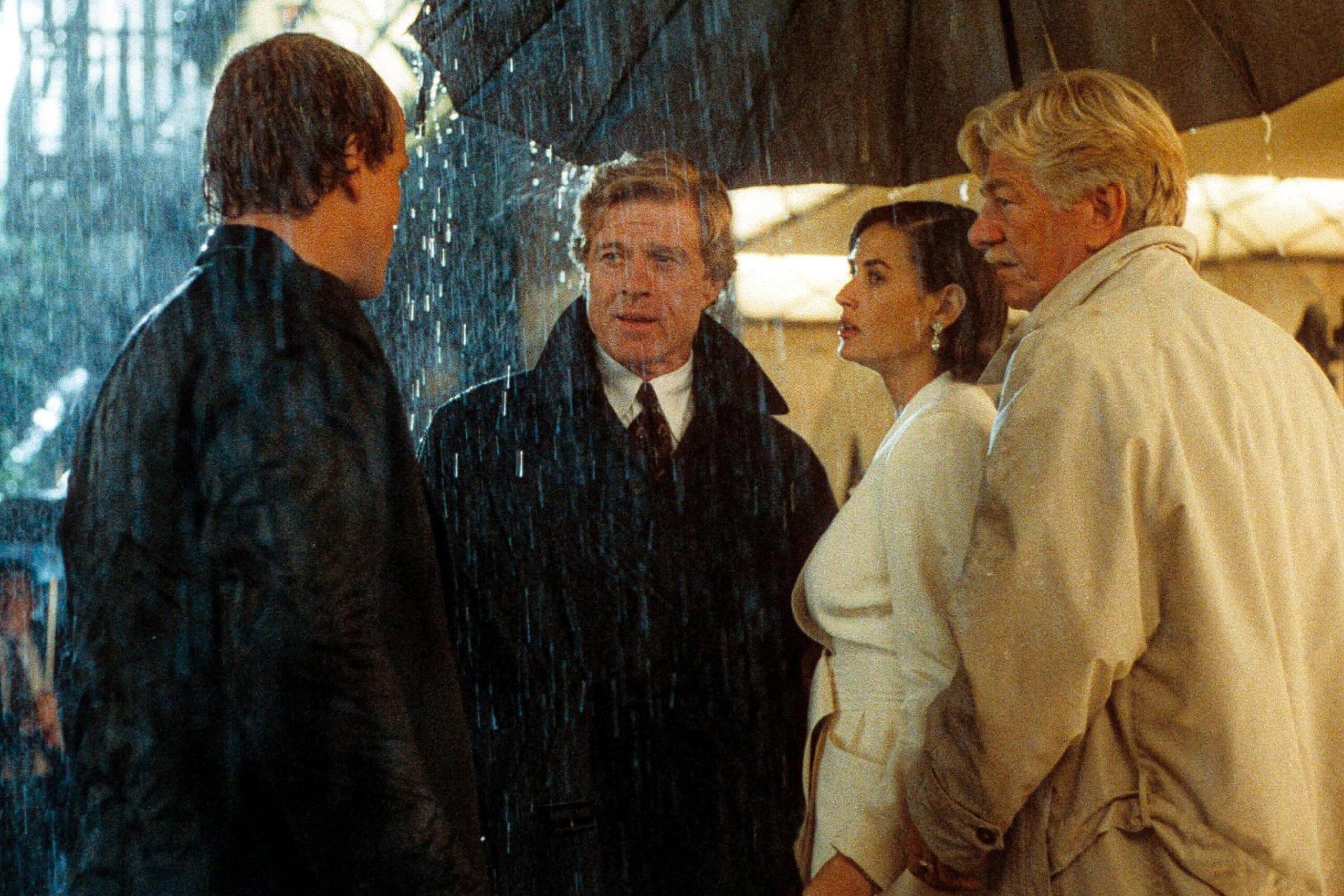
18. The Hunger Games Trilogy (2011-2015)
Rubric score: 15. Tension (4), Suspense (3), Entertainment Value (3), Chemistry (2), Subversion (3)
The Hunger Games trilogy has so much going on (dystopian battles to the death, and so on) that it doesn’t feel like a story driven by a love triangle—but it is. The story puts the already stubborn and indecisive Katniss Everdeen in a tug-of-war between two hot guys who are obsessed with her despite her lack of expression. Katniss has known Gale her whole life; he knows her better than anyone. Meanwhile, Peeta Mellark is her partner in rebellion. He’s seen a different, softer side of her that no one else can crack, not even Gale. Katniss’s love for Gale and Peeta is central to her journey throughout the series: If it weren’t for Peeta, she wouldn’t have become the face of a rebellion.
17. Bull Durham (1988)
Rubric score: 16. Tension (3), Suspense (2), Entertainment Value (4), Chemistry (5), Subversion (2)
Bull Durham tells the story of Annie (Susan Sarandon), a minor league baseball groupie torn between Kevin Costner and Tim Robbins. Choosing between these two men was something every woman had to do in 1988 (and even now). It’s a very good love triangle. However, it is hard to ignore the fact that Sarandon is embracing Costner on the film’s official poster, while Robbins is completely absent.
16. Take This Waltz (2011)
Rubric score: 19. Tension (3), Suspense (4), Entertainment Value (4), Chemistry (3), Subversion (5)
Take This Waltz is a charming little film that flips the love triangle trope on its head by examining what happens afterward. More specifically, it wonders if choosing the other guy gets you right back where you started. Margot (Michelle Williams) develops an attraction to her neighbor Daniel (Luke Kirby), which causes tension in her happy but uneventful marriage to Lou (Seth Rogen). In the end, she leaves Lou for Daniel, but ends up in a mirrored scenario.
15. Never Let Me Go (2010)
Rubric score: 20. Tension (4), Suspense (4), Entertainment Value (4), Chemistry (4), Subversion (4)
Kathy (Carey Mulligan), Tommy (Andrew Garfield), and Ruth (Keira Knightley) are boarding school students who discover they are clones who exist to become organ donors in adulthood. The clones are incentivized to find love because it could be their only way to survive. Thus, the most distressing love triangle ever written ensues. For Celine Song’s next movie, can we get these three actors into a less upsetting love triangle, please?
14. The Worst Person in the World (2021)
Rubric score: 19. Tension (3), Suspense (5), Entertainment Value (4), Chemistry (3), Subversion (4)
Julie navigates through the knots of her heart’s desire: Does she choose her boyfriend Aksel or Eivind? Aksel is older and well-established, while Eivind is younger and eccentric. Both men show different sides of Julie, and both bring out different qualities, good and bad. Julie gets a taste of who she is with both, and is most drawn to Eivind’s free spirit rather than Aksel’s stability. But as the film unfolds and Julie proves she is the titular worst person in the world, that starts to change. The film cleverly uses the love triangle to dig into a complex character’s emotional depth, revealing Julie’s anxieties, insecurities, and expectations. There’s a reason everyone is saying that it’s going to be a Joachim Trier Summer.
13. Bridget Jones’s Diary (2001)
Rubric score: 21. Tension (3), Suspense (4), Entertainment Value (5), Chemistry (5), Subversion (4)
Bridget Jones’s Diary—a modern spin on Pride and Prejudice—is a love triangle movie that understands the messiness of real-life desire. Bridget is torn between the charming but toxic Daniel Cleaver (Hugh Grant) and the awkward but perfect Mark Darcy (Colin Firth), though neither is a cliché. This love triangle is a tug-of-war between who we think we want and who actually sees us. Also Hugh Grant and Colin Firth fist-fight in the rain.
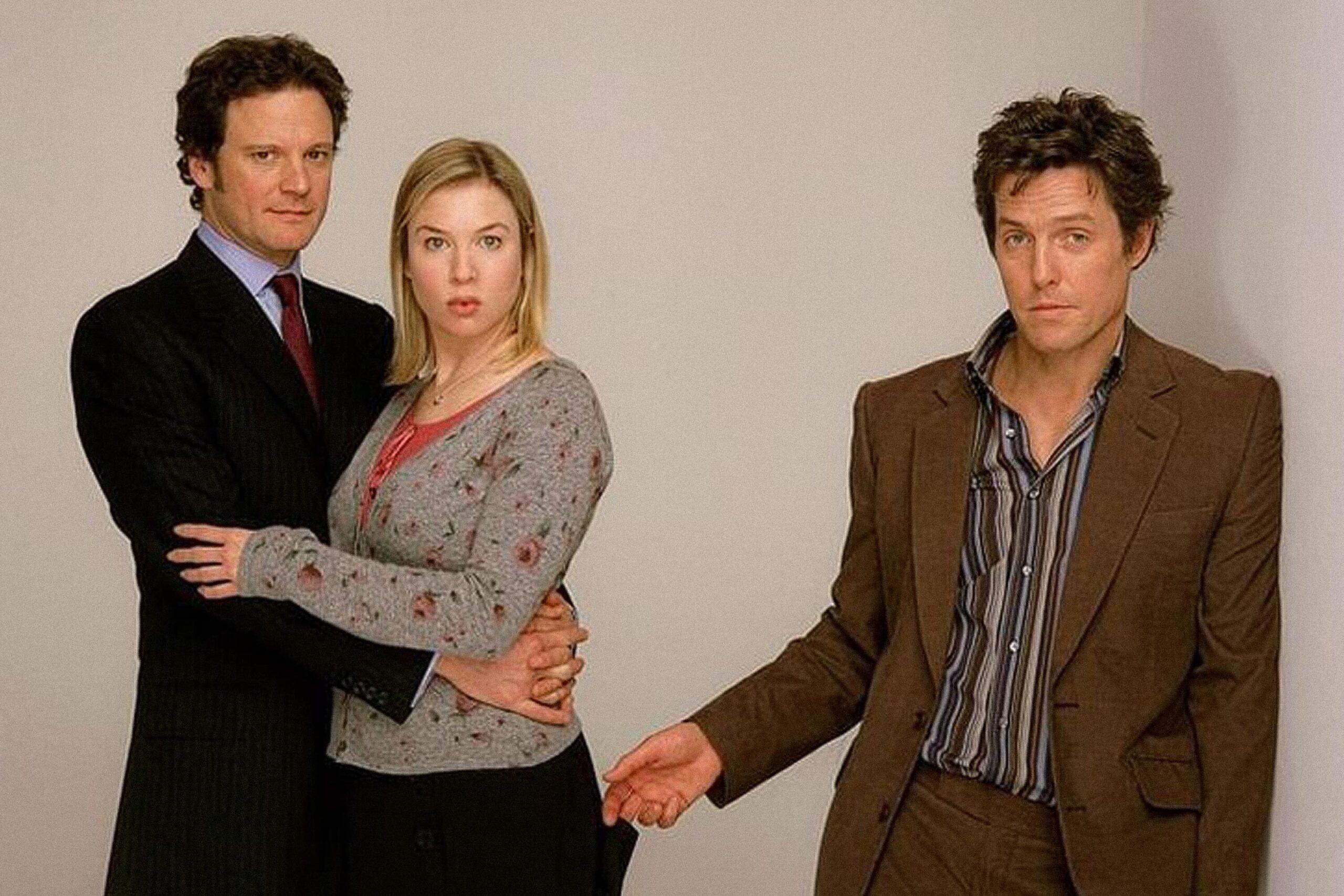
12. Challengers (2024)
Rubric score: 24. Tension (5), Suspense (5), Entertainment Value, (5) Chemistry (4), Subversion (5)
Challengers challenges the love triangle concept by constantly shifting the central point (is this correct geometry wording?) of the love triangle. It also makes Tashi (Zendaya) relatively indifferent toward both men in it. Patrick and Art are meaningful to her, but she would be just fine without either, a subversion that makes the sexy tennis thriller all the more thrilling (and sexy).
11. Materialists (2025)
Rubric score: 15. Tension (3), Suspense (1), Entertainment Value (4), Chemistry (3), Subversion (5)
Although it has nothing to do with the love triangle, Dakota Johnson’s Lucy pretends to apply lip liner while Cat Power’s “Manhattan” plays in the opening sequence of Materialists, which sets the tone for a dramedy that examines what we want versus what we need. Song plays with the love triangle trope by providing deeper meaning to the men themselves: Harry (Pedro Pascal) represents a desire for comfort and materialism, while John (Chris Evans) is what the heart truly wants. Is love a math equation? Or is it something unquantifiable?
10. Center Stage (2000)
Rubric score: 10. Tension (3), Suspense (3), Entertainment Value (2), Chemistry (1), Subversion (1)
Center Stage is, more than anything, a stupid movie. The love triangle at the center of the film’s stage, if you will, is between Cooper Nielson, an arrogant ballet star and teacher at the School of American Ballet, Jody Sawyer, a student who was admitted not because she’s a great dancer but because she’s hot, and Charlie, a star student. Cooper crosses several moral boundaries by engaging in a romantic and sexual relationship with Jody. Then he writes a modern dance epic based on that, casting Jody as herself, himself as himself, and Charlie as the Other Guy. Rehearsals and the final show reflect the tension going on within the real love triangle. It is dumb and perfect; it marks Zoe Saldaña’s feature film debut as Eva, a talented ballerina with an attitude and a chain-smoking problem; it features an original song by Mandy Moore; and none of the male actors in the love triangle do anything to convince the audience they are into Jody, or, frankly, any woman.
9. The Favourite (2018)
Rubric score: 22. Tension (4), Suspense (5), Entertainment Value (5), Chemistry (3), Subversion (5)
The Favourite uses a messy, sexual, and violent love triangle between three women to explore female power dynamics, political intrigue, and sexuality. Abigail (Emma Stone) and Sarah Churchill (Rachel Weisz) go to great lengths to compete for the favor and affection of Queen Anne (Olivia Colman). This love triangle doesn’t have a happy ending, but a fitting one: Abigail and Sarah are punished in unique ways for taking advantage of their access to power.
8. Brooklyn (2015)
Rubric score: 20. Tension (5), Suspense (3), Entertainment Value (4), Chemistry (3), Subversion (4)
Ellis, a young woman played by Saoirse Ronan, moves to Brooklyn from Ireland and learns how to eat spaghetti to impress an Italian plumber named Tony. But later, she finds an unexpected connection with Domhnall Gleeson’s Jim when she visits her homeland. It’s hard not to root for Mr. Gleeson, but she can’t resist the spaghetti.
7. Fight Club (1999)
Rubric score: 22. Tension (4), Suspense (5), Entertainment Value (3), Chemistry (4), Subversion (5)
Can you have a love triangle with yourself? Yes, you can. Fight Club isn’t just a critique of consumerism and masculinity—it’s also, secretly, a love triangle. At its core, the film is about one man (the narrator), his idealized version of manhood (Tyler Durden), and the woman who threatens that illusion (Marla Singer). Marla is both a romantic rival and a mirror, forcing the narrator to confront the emotional intimacy he’s trying to avoid. Tyler wants dominance, Marla wants connection, and the narrator is caught in the middle: torn between chaos and vulnerability, destruction and love.
6. The Age of Innocence (1993)
Rubric score: 20. Tension (4), Suspense (3), Entertainment Value (5), Chemistry (4), Subversion (4)
The Age of Innocence is a master class in restrained passion and repressed desire. Somehow, Martin Scorsese made a melodramatic historical love triangle as exciting as a gangster story. This isn’t just about choosing between two women; it’s about the brutal cost of conformity and the fantasies we build to survive it. The real tension isn’t just romantic, it’s societal.
5. Past Lives (2023)
Rubric score: 22. Tension (5), Suspense (3), Entertainment Value (5), Chemistry (4), Subversion (5)
Whenever a past love comes to town in a movie, the romantic lead usually leaves their current partner for them by the end. It is positioned as the right, moral choice, while the partner left behind is presented as morally corrupt in some way. In Past Lives, though, Celine Song ignores the convention. A love from the past comes to town and challenges the main character, making her question her life. She wonders what could have been, but ultimately, it makes her appreciate what she has now. The love triangle isn’t a mystery to be solved, but a journey of self-discovery.
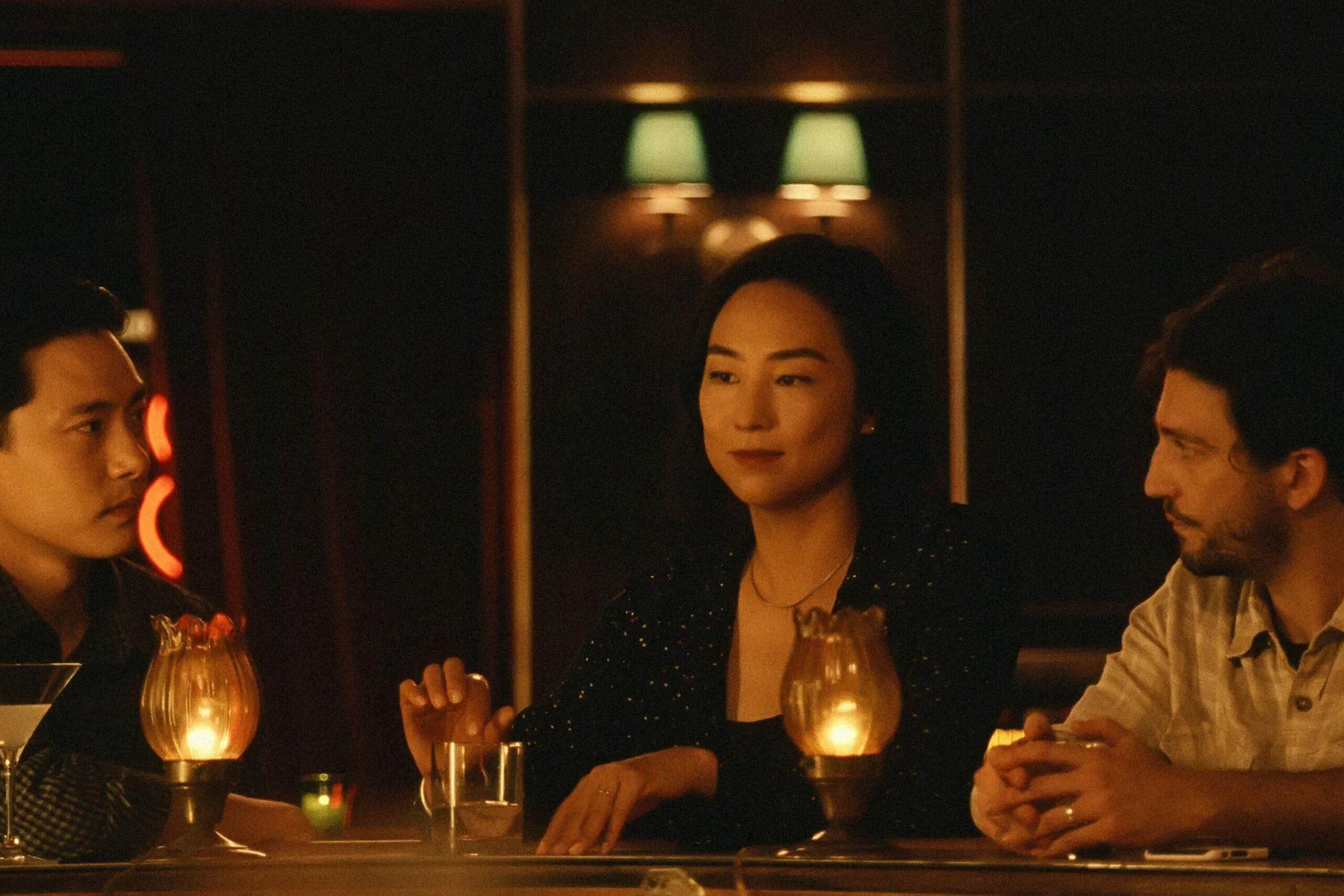
4. Broadcast News (1987)
Rubric score: 21. Tension (5), Suspense (3), Entertainment Value (5), Chemistry (5), Subversion (3)
Jane Craig (Holly Hunter) is a virtuoso national news producer torn between two men: the brilliant but socially inept reporter Aaron (Albert Brooks) and the charismatic but dense on-camera personality Tom (William Hurt). Ultimately, wit wins. Will himbos ever get a chance?
3. The Apartment (1960)
Rubric score: 21. Tension (5), Suspense (3), Entertainment Value (5), Chemistry (5), Subversion (3)
The Apartment is a classic, and the foundation for all love triangular rom-coms that followed in that it presents the ordinary guy who’s more appropriate for true love than a wealthy fling. While Shirley MacLaine’s Fran has an affair with a rich executive, she begins to realize that the right man for her is Bud Baxter (Jack Lemmon), a lonely office clerk who lives nearby.
2. Reality Bites (1994)
Rubric score: 19. Tension (3), Suspense (4), Entertainment Value (4), Chemistry (4), Subversion (4)
Reality Bites feels both wildly specific and universal. Lelaina (Winona Ryder) is caught between Troy (Ethan Hawke), the brooding slacker who challenges her, and Michael (Ben Stiller), the ambitious yuppie who offers stability. Basically, Lelaina is choosing between chaos and comfort. But the film isn’t just about who she ends up with—it’s about how Lelaina figures out her identity, ambition, and vulnerability. Her ultimate choice is still a robust conversation topic at dinner parties, on par with “Jack could have fit on the door.”
1. Casablanca (1942)
Rubric score: 25. Tension (5), Suspense (5), Entertainment Value (5), Chemistry (5), Subversion (5)
Casablanca set the standard. The story, set in the midst of World War II during the Nazi occupation of France, centers on Ilsa (Ingrid Bergman), Rick (Humphrey Bogart), and Victor (Paul Henreid), a love triangle containing so much conflict and tension that Ilsa’s final decision has been at the center of conversations about film for decades, and is even a consistent bit in When Harry Met Sally … Casablanca presents the love triangle as a natural occurrence, rather than shoving it into the story (ahem, Pearl Harbor). The ending is also—in the best way—a product of its time, given the context: Had the movie been set in any other time period or any other place (i.e., not amid a world war), the results could have been different.
